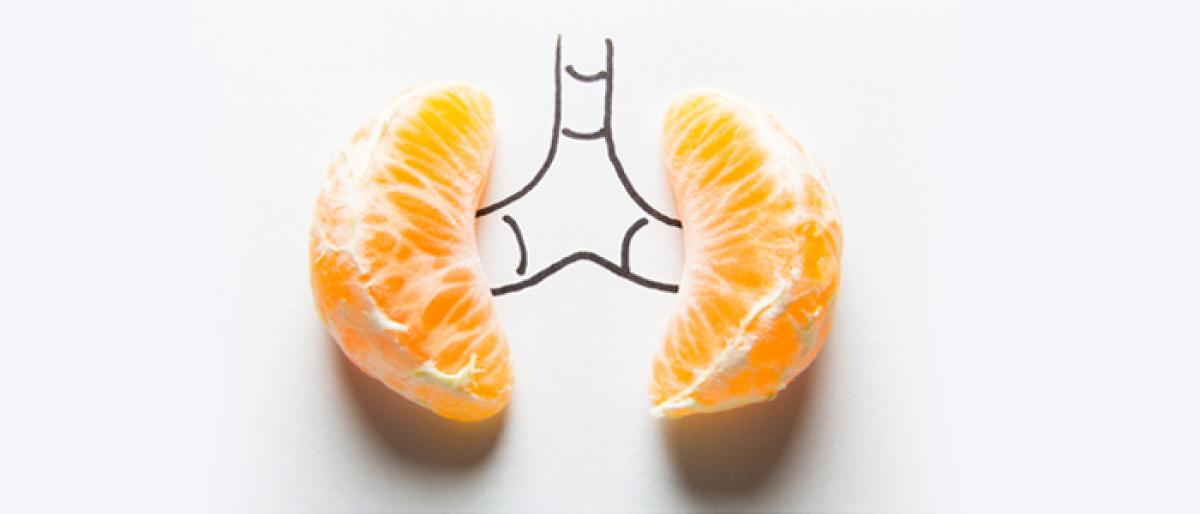8 Things You Should Know About Your Kidneys

Kidneys have the primary task of filtering waste and impurities from blood by producing urine Kidneys also produce hormones and enzymes that ensure the wellbeing of bone health and are pivotal in the production of hormones responsible for stimulating red blood cells
Kidneys have the primary task of filtering waste and impurities from blood by producing urine. Kidneys also produce hormones and enzymes that ensure the well-being of bone health and are pivotal in the production of hormones responsible for stimulating red blood cells.
But very often, people complain of ailments which are directly or indirectly associated with kidneys. With modern lifestyle and stressful life, it is important to combat different situations where kidneys are most affected. There are few signs which invariably indicate kidney disease which are discussed as follows.
1. Insomnia
There is a link between obesity and kidney disease and sleep apnea. Due to kidney malfunction, toxins aren't removed from the body, which, in turn, leads to insomnia.
2. Diabetes and Kidneys
Due to diabetes, human body suffers micro-vascular damage and kidneys are no exception. In fact, all over the world, many diabetic individuals suffer from serious kidney ailments.
3. Presence of Blood in The Urine
When kidney's filters are damaged, blood comes out along with urine. Not only kidney disease, but blood in the urine also indicates the presence of tumours, kidney stones or infection.
4. Swollen Ankles and Feet
Due to sodium retention, kidney function gets hampered and swelling in ankles and feet thus become evident. Such condition may also be triggered by heart disease, liver disease or chronic leg vein problems.
5. Consistent Muscle Cramps
Due to impaired kidney function along with low calcium level and poorly controlled phosphorus, electrolyte imbalance is not an uncommon feature. Often such a scenario leads to consistent muscle cramps.
6. Persistent Puffiness Around the Eyes
Puffiness around the eyes clearly indicates that kidneys are leaking large amount of protein along with urine.
7. Poor Appetite
Due to the buildup of toxins resulting from reduced kidney function, poor appetite is evident in individuals.
8. The Urge to Urinate More
If individuals experience the need to urinate more, mostly at night, then it categorically indicates kidney disease. Although in some cases, it may also indicate a sign of urinary infection or enlarged prostate in case of aged men.
Anyhow there are some golden rules, following which one can definitely ensure healthy kidneys.
- Monitoring Blood Pressure Regularly: High blood pressure is often the reason behind kidney damage. Thus, it is important to discuss the risks associated with the same with a concerned physician and monitor blood pressure from time to time.
- Checking Blood Sugar Level: It is important for people with diabetes to have regular tests to check kidney function and consult a doctor for medication.
- Opting Balanced Diet: Eating healthy can be instrumental in controlling weight gain and help prevent diabetes, heart diseases and other ailments which are associated with chronic kidney disease.
- Maintaining Healthy Fluid Intake: Although there is no fixed amount of fluid intake prescribed for any individual, still, consuming plenty of water helps kidneys to clear sodium, urea and toxins from the body.
- Quitting Smoking: Smoking invariably slows down the flow of blood to kidneys and thus quitting the same improves their function.
Purchase Heart and Cancer Insurance
You may take all the necessary precautions, but there is no guarantee that you remain immune to critical illnesses like heart diseases, strokes or even worse, cancer. Hence, apart from adopting a healthy lifestyle, make sure you create a financial backup to take care of any medical emergency.
Having heart and cancer insurance plan can help you in this regard as it provides a lump sum amount on diagnosis of any critical illness mentioned in the policy document. This lump sum amount not only helps take care of hospital bills but also caters to your treatment cost, household expenses or any outstanding debts.









